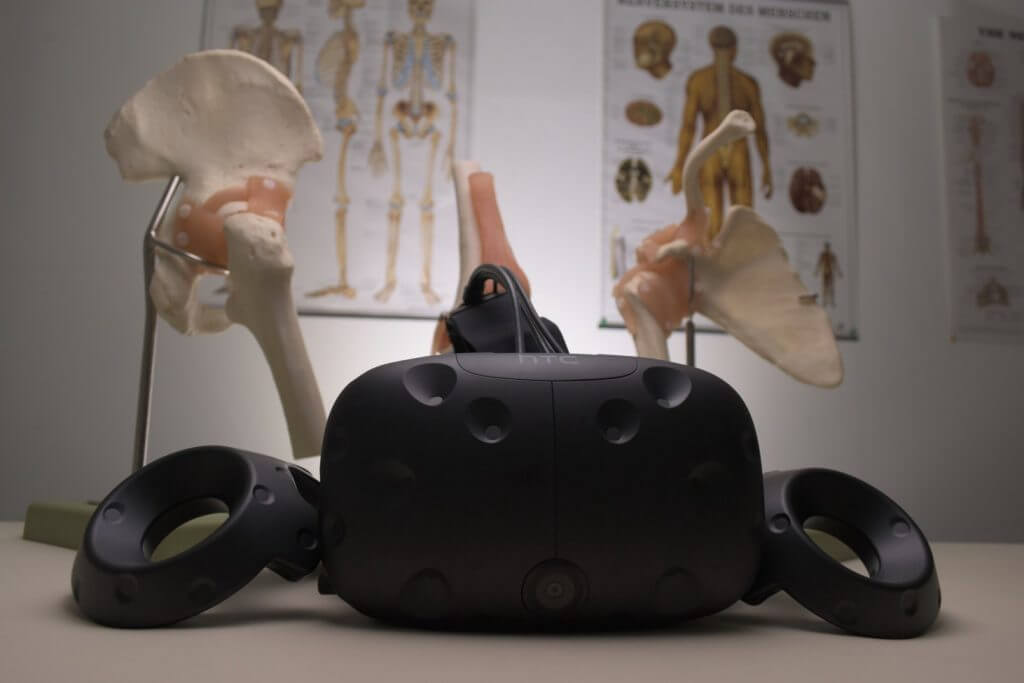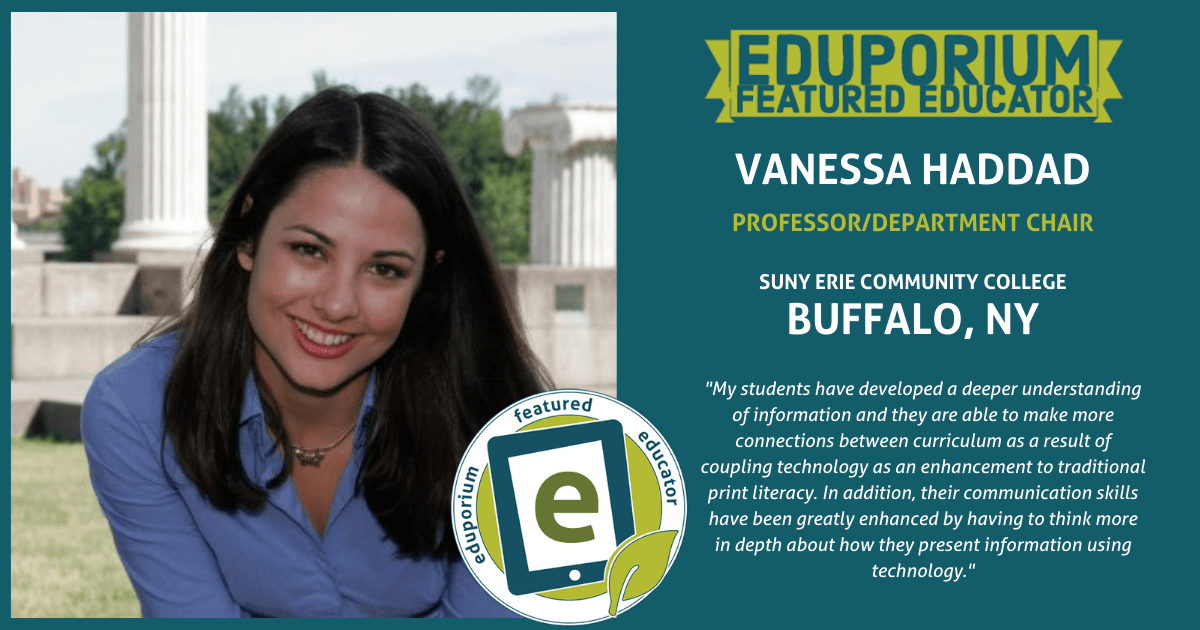We’re ready to introduce the Eduporium community to our first Eduporium Featured Educator of 2021. This month, we hear from Vanessa Haddad, who’s a professor, department chair, and director of the Honors Program at SUNY Erie Community College in Buffalo, NY. Vanessa has found creative ways to leverage various types of technology in her instruction and certainly found that providing students with these hands-on experiences has helped them develop real-world skills through their experiences.
Vanessa Haddad
Professor and Department Chair, SUNY Erie CC, Buffalo, NY

Q&A:
Please share any innovative technology project(s) you've completed with your students or plan to complete.
I have created an e-portfolio project for my students to complete as a requirement before graduating. This portfolio project helps all graduating students in my liberal arts program learn how do design a website, how to present themselves effectively as professionals online, how to articulate their goals, and plan for how they will achieve them. This project is the culmination of what they've learned in our program and helps enhance their soft skills before either transferring to a four-year institution or before entering the job market.
Additionally, I also integrate video games into my classroom. I often use "serious" games to simulate scenarios in the professional world (such as "Two Interviewees"). This helps foster historical empathy ("Father and Son") and deepen understanding between societal structure and social theory (I've used "Sim City" for this in my sociology course).
I've also designed a game called "American Life Simulator" with Yonghong Tong, Todd Schoepflin, and John Stoddard from Niagara University. The goal is learning about connections between sociological data and how people move through societies based on the master status.
What is a challenge you faced or are facing with your technology use? What resources did you use or are in need of?
The biggest challenges that I've faced using EdTech in the classroom are mainly in relation to equitable access of technology. When I find something that I think will enhance learning, I've often had difficulty obtaining funding to purchase the technology. Additionally, they need to be mobile compatible for students since many of them rely on their phones for Internet access.
What are some of the real-world skills you've seen your students develop through regular EdTech use?
My students have developed a deeper understanding of information and they are able to make more connections between curriculum as a result of coupling technology as an enhancement to traditional print literacy. In addition, their communication skills have improved by having to think more carefully about how they present information using technology.

What interests you most about Eduporium?
Though the Eduporium team works largely with K-12 educators, they certainly know what’s needed and valued when it comes to technology in higher education as well. In particular, their virtual reality offerings have caught my eye and I know they have potential in higher education.
We thank Vanessa for sharing her thoughts with us and for helping to create effective STEAM learning experiences for students. We hope these stories continue to inspire other educators to try some new things as well! Follow us on Twitter and Instagram for more updates on the great things educators are doing with technology. Also, if you’d like to apply to be an Eduporium Featured Educator, you can fill out the application!



